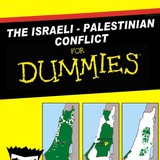View in Telegram
University of New Hampshire: In both the West Bank and Gaza Strip, we have found that Israeli control over infrastructure, construction, land use and movement undermines civilian welfare even as these effects are ‘walled o ’—literally and in public discourse—from the Israeli public and, increasingly, from the international community. Our findings show how the systematic targeting of the water, energy and agriculture sectors is an important feature of the evolving ‘occupation regime’ that directly undermines the ability of Palestinians to stay in place. Direct and indirect forms of targeting have persisted and intensi ed in the time period under consideration, helping to create a humanitarian crisis in Gaza and a fragmented, donor-dependent series of encircled enclaves in the West Bank. Targeting infrastructures that support water and energy supplies, and agricultural and fishing livelihoods, has made Palestinian places increasingly less habitable and Palestinian civilian life increasingly precarious.
Limits on imports of fuel to Gaza led to court cases between human rights organizations and the Israeli government. The Israeli HCJ ruled in three decisions between 2007 and 2008 that Israel could cut fuel supplies from previously estab- lished levels to those meeting only ‘essential humanitarian needs’.93 Human rights organizations argued that such decisions amounted to an illegal collective punishment, violating IHL, and also overlooked the fact that energy is essential to a functioning economy and ordinary civilian livelihoods
The relationship between Hamas and Israel, especially under Prime Minister Netanyahu, has remained fraught, with recurrent periods of violent conflict in 2008–2009, 2012, 2014 and 2018.
Telegram Center
Channel
